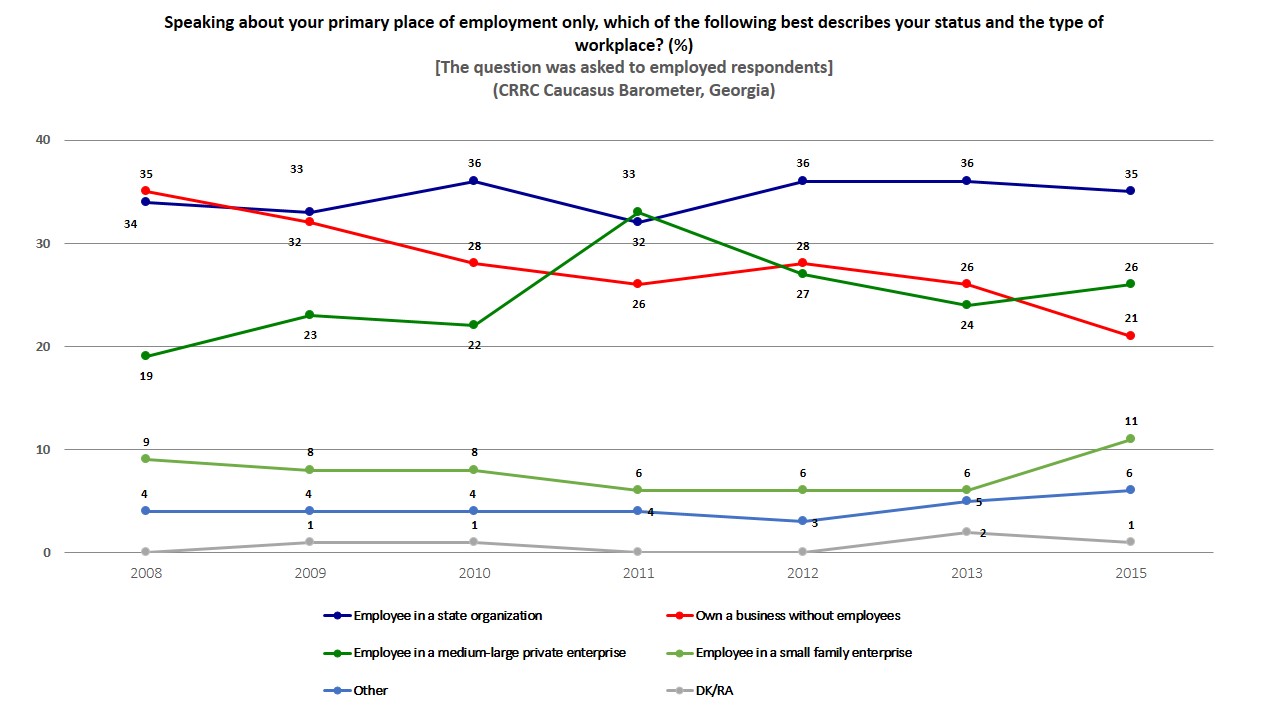Trends in the data: Changes in Employment Sector and Type of Employment in Georgia
According to CRRC’s Caucasus Barometer (CB) surveys from 2008 to 2015, the self-reported employment rate is rather stable in Georgia – approximately 35%. This blog post looks at the trends in CB data on primary employment sector and type of primary workplace. Throughout the post, only the answers of those who reported being employed – slightly above a third of the population – are analyzed.
In 2015, as in previous waves of CB, the largest share of those who considered themselves employed – 14% – reported being employed in the agriculture, hunting, or forestry sector. Importantly, however, this share has declined considerably since 2008, when 29% of the employed reported being employed in this sector. Over the same period, the shares of those employed in other major sectors (trade, education, construction) have remained stable.
Note: In addition to actual responses of “Other”, several other options of low frequency are also included in this category on the chart above. That is, category “Other” in this chart includes responses “Healthcare and Social work”, “Financial Intermediation and Banking”, “Hotels, Restaurants, Cafes”, “Manufacturing”, “Transport and Storage”, “Electricity, Gas, and Water Supply” and “Mining and Quarrying”.
A similar downward trend is observed between 2008 and 2015 in the share of employees who reported “owning a business without employees.” While in 2008, this share was about a third of those who were employed, roughly equal to those employed by state organizations, it decreased to 21% in 2015.
Although these two findings are not necessarily related, they show interesting trends in the employment situation in Georgia. Fewer people report working in the agriculture, hunting, and forestry sector, and fewer people report being sole proprietors than in the past. Both these trends suggest that the composition of the Georgian labor market may be shifting, and both call for further and thorough analysis.
CRRC’s Caucasus Barometer survey data and respective documentation are available at our online data analysis tool.
